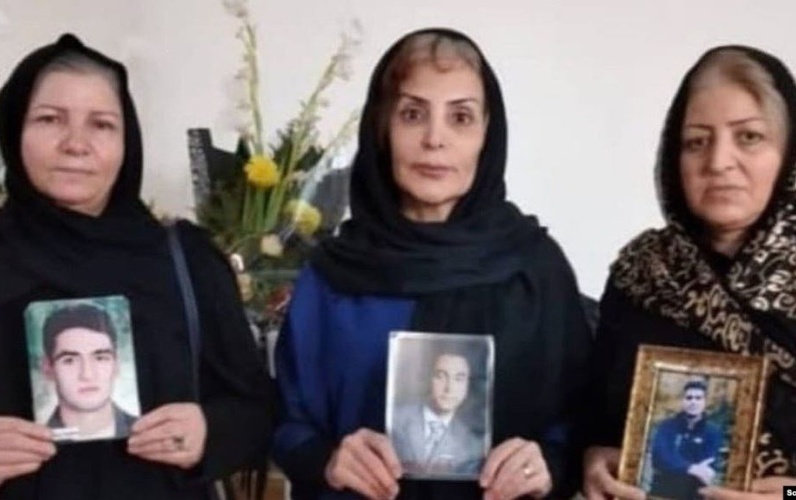Mothers hold up photos of their sons killed in November 2019 protests in Iran
Iran’s regime has rejected a report of 1,500 people killed in last month’s mass protests over a sharp rise in petrol prices.
Citing “three Iranian Interior Ministry officials”, Reuters wrote on Sunday of the death toll, which includes at least 17 teenagers and about 400 women.
Two of the officials said the list is based on information gathered from security forces, morgues, hospitals, and coroner’s offices.
Alireza Zarifian Yeganeh, a senior official at the Supreme National Security Council, blasted the article as “false propaganda”:
Such types of news writing and making accusations are by no means a complicated task. These claims are leveled based on a set of premeditated psychological warfare and lack credibility.
“The protestations that Reuters made in its report are totally worthless not only in terms of security issues and intelligence but in the field of news and media, and will damage the already-tarnished credibility of this agency.
The Iranian regime has not issued an official toll. Families say officials have refused to release bodies of their relatives and warned against any communication with the media.
Yeganeh did not respond to Reuters’ report, drawn from “three sources close to the Supreme Leader’s inner circle and a fourth official”, that Ayatollah Khamenei commanded officials, “The Islamic Republic is in danger. Do whatever it takes to end [the protests].”
See also Iran Daily, Dec 21: Supreme Leader — “Do Whatever It Takes to End The Protests”
Amnesty International has issued a confirmed total of 304 protesters killed by security forces, many of them at close range and some as they were fleeing.
The demonstrations were sparked on November 15 by the Government’s midnight order for a 50% to 200% rise in petrol prices. Within hours of the late-night announcement, protesters stopped cars on highways and held rallies across Iran. Security forces began trying to disperse the crowds, and some demonstrators burnt banks — a target of anger amid corruption and loss of personal savings — and Government buildings.

